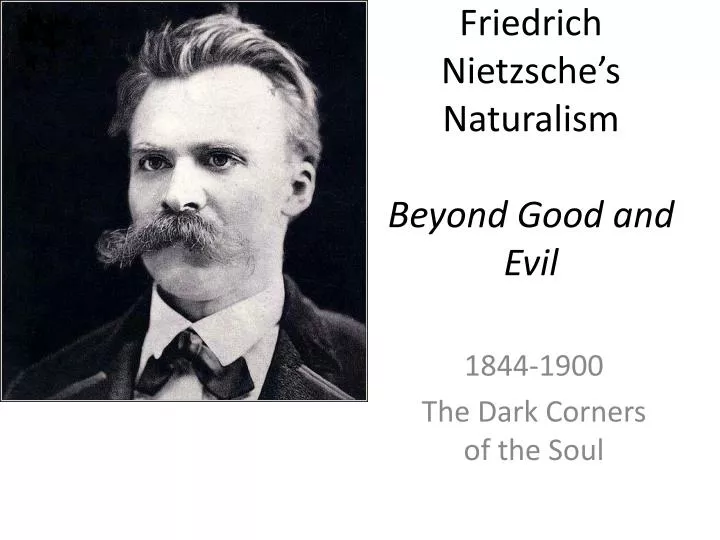

The strategy by which Clark and Dudrick substantiate this general approach is carried out in two main steps. Once this blindness is removed, she would realize that "he does not turn his back on the normative aspirations of traditional philosophy" (9). To take this talk at face value would be to remain blind to the esoteric meaning Nietzsche is actually trying to convey to the (careful) reader.

This would be true, in particular, of the physiological and biological talk he often adopts. Nietzsche's way of writing, they suggest, aims at urging the (attentive) reader to overcome this allegedly superficial impression and access the deeper, esoteric meaning of his book. This, however, they claim, is just how it looks exoterically. The authors claim that BGE can be read either exoterically or esoterically. Prima facie, the book seems to articulate a completely naturalistic project. Their focus is on Part 1 of BGE, for there Nietzsche lays the theoretical ground for his subsequent treatment of ethics. The result is a powerfully argued and challenging investigation, which shows how sophisticated Nietzsche's treatment of the traditional questions about the True and the Good is.

Clark and Dudrick take on the ambitious task of offering a textually careful as well as philosophically sensitive reading of the book. It is, at the same time, an extraordinarily intricate piece of philosophical writing.

Moreover, BGE is supposed to provide an "introduction to the background of Zarathustra", as Nietzsche wrote to his editor. The book is also intimately connected to other important pieces Nietzsche wrote in this period, like On the Genealogy of Morality (1887) and the fifth book of The Gay Science (1887). Certainly, it is the best place to look if one is interested in his views on thosetopics which traditionally come under the heading of "first philosophy". Beyond Good and Evil (1886) (BGE) arguably occupies a privileged position in the economy of Nietzsche's works.


 0 kommentar(er)
0 kommentar(er)
